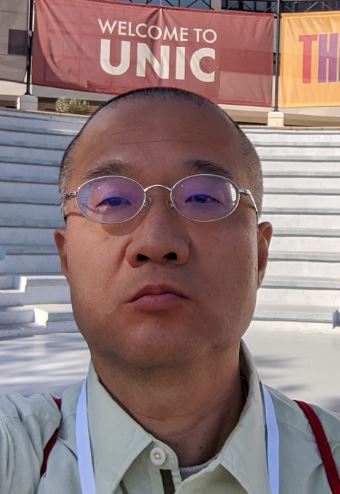KEYNOTE SPEAKERS

Prof. Nikolaos G. Bourbakis
An SPN Holistic Approach for Automatic Deep Understanding of Technical Documents
Abstract: For many decades scientists and practitioners are developing methodologies for solving simple and complex scientific problems. Lately, they are creating synergies of different methodologies in order to solve these complex problems, but they have to face issues of compatibility among the different modalities that compose these scientific problems. One of these complex problems is the deep processing and understanding of technical documents, which are composed by different modalities, like natural language text, system diagrams, math formulas, algorithms, tables, graphics, pictures, etc. Humans have the ability to understand, process and associate these modalities to significantly contribute to the overall deeper understanding of the technical document and the knowledge represented in it.
Thus, this talk offers a possible solution to these multimodal complex problems by expressing all the modalities into the same medium (in this case the Stochastic Petri-nets (SPN) model) for a synergistic and automatic deep understanding of technical documents (TDs). Specifically, all the modalities are expressed into Natural Language Sentences and into SPN models for better associations and deeper understanding.
Short bio: Prof. Nikolaos Bourbakis (IEEE Life Fellow) currently is a Distinguished Professor of Information & Technology and the Director of the Center of Assistive Research Technologies (CART) at Wright State University, OH. He is the Founder and the EIC of three International Journals (Artificial Intelligence Tools (World Scientific Publ.), Monitoring and Surveillance Tech Research (IGI-Global, Publ.), and Bioengineering & Bioinformatics (EAI Transactions)) the Founder and the Steering Committee Chair of several International IEEE Computer Society Conferences (ICTAI, BIBE, IISA), Symposia and Workshops. He pursues research in Assistive Technologies, Applied Artificial Intelligence, Bioengineering, Information Security, and Distributed Processing funded by USA and European government and industry. He has extensively published in IEEE and International Journals and Conferences, and he has graduated several dozens of PhD students. His research work has been internationally recognized and won several prestigious awards in IEEE, Universities and Societies.

Prof. Haruhiko Kaiya
Kanagawa University, Hiratsuka 259-1293, Japan
Quantitative Analysis of Goal Oriented Requirements Models
Abstract: An information system is developed and embedded into a dairy activity to satisfy requirements of people in the activity. Because the system is expected to improve the activity, we have to predict the extent of such improvement. Goal oriented requirements models are useful to represent the relationships among systems and people in a business or life activity. We have proposed extended goal oriented requirements models to predict how well the system improves the activity of the people. In this talk, we briefly introduce typical goal oriented requirements models, and their extensions suitable for quantitative analysis. Finally, we show several issues of future challenges.
Short bio: Haruhiko Kaiya is a Professor in the faculty of science of Kanagawa University, Japan. He is interested mainly in requirements engineering especially goal oriented models and ontologies. He was a member of program committee in international requirements engineering conferences (RE) and international conferences on advanced information systems engineering (CAiSE).
